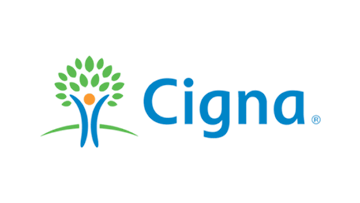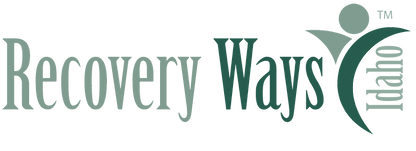
The Importance of Family Counseling
Family counseling serves as a cornerstone for addressing and resolving various relational dynamics that families encounter. By facilitating communication and fostering mutual understanding, it helps family members navigate conflicts and strengthen their bonds. Idaho Behavior stands out in this field, aiming to enhance the quality of life for each individual and the family unit as a whole.
Family counseling services in Boise, Idaho, particularly those provided by Idaho Behavior, incorporate evidence-based practices. This commitment ensures that interventions are both effective and adaptable to the unique needs of each family. Families experiencing issues such as sibling rivalry, parental disputes, or transitional challenges can benefit greatly from these services.
Tailored Approaches in Counseling
A key aspect of Idaho Behavior’s success lies in its ability to customize counseling plans to meet each family’s specific needs. By conducting thorough assessments, therapists identify the underlying issues affecting family dynamics. This personalized approach ensures that interventions are targeted and effective.
Idaho Behavior employs a range of therapeutic techniques, including cognitive-behavioral therapy and family systems therapy, to address diverse challenges. These methods are chosen based on the individual needs and preferences of the family, ensuring a customized path to healing and growth.
Diverse Services Offered by Idaho Behavior
Understanding that every family is different, Idaho Behavior provides an extensive suite of services. These include individual therapy, family counseling, and skill-building sessions that cater to various age groups and issues. Such diversity ensures that clients find solutions that are relevant to their particular circumstances.
From addressing anxiety and depression to supporting those with autism spectrum disorders, Idaho Behavior covers a wide range of psychological and behavioral concerns. This comprehensive offering ensures families receive holistic care that addresses both individual and collective needs.
Skill-building sessions are particularly beneficial for families looking to improve communication and problem-solving abilities. These sessions empower participants with practical tools that can be applied in everyday life, promoting lasting positive change.
The Role of Evidence-Based Practices
Evidence-based practices are a cornerstone of Idaho Behavior’s approach to family counseling. By utilizing interventions grounded in scientific research, the organization ensures that families receive effective and up-to-date therapeutic care. This approach not only enhances treatment outcomes but also instills confidence in clients, knowing they receive the best care possible.
Idaho Behavior continuously invests in ongoing training for its staff, ensuring they remain knowledgeable about the latest advancements in behavioral health. This commitment to professional development helps maintain the highest standard of care, benefiting families seeking counseling services in Boise, Idaho.
Through the application of evidence-based practices, Idaho Behavior empowers clients to achieve meaningful, long-term changes. This commitment underscores their dedication to fostering resilience and mental wellness within the community.
Impact on Mental Wellness and Community
Family counseling services provided by Idaho Behavior play a critical role in promoting mental wellness throughout the Boise community. By addressing emotional and behavioral challenges, these services contribute to improved mental health outcomes for individuals and families alike.
Idaho Behavior’s commitment extends beyond individual clients, as they strive to foster a community that values mental health education and support. This holistic approach benefits not only the immediate family unit but also the larger community, as healthy families contribute to a thriving society.
By creating a safe and supportive environment, Idaho Behavior ensures clients feel valued and understood. This welcoming atmosphere is integral to successful counseling outcomes, reinforcing the organization’s dedication to compassionate care.
Emphasizing Client-Centered Care
At Idaho Behavior, the client is at the heart of every therapeutic intervention. This client-centered approach ensures that each individual and family receives care tailored to their specific needs and goals. By placing clients’ perspectives and experiences at the forefront, Idaho Behavior fosters a collaborative therapeutic environment.
Client-centered care involves active listening and empathy, allowing therapists to genuinely understand and address the concerns of their clients. This approach not only enhances the therapeutic relationship but also empowers clients to take an active role in their healing process.
Real-Life Success Stories
The transformative impact of family counseling services in Boise, Idaho, is often best illustrated through real-life success stories. Many families have reported significant improvements in their relationships and overall mental health after engaging with Idaho Behavior’s services.
One family, for instance, overcame years of unresolved conflict through consistent counseling sessions, leading to a renewed sense of harmony and understanding. Another client found relief from severe anxiety, enabling them to engage more meaningfully with family and community activities.
These stories highlight the compassionate and effective care provided by Idaho Behavior, inspiring others to seek help and embrace the possibility of positive change.
The testimonials from satisfied clients underscore the powerful impact that professional counseling can have, reinforcing the value of seeking support when navigating life’s challenges.
Accessibility and Availability of Services
Idaho Behavior makes accessibility a priority, ensuring that family counseling services are available to all who need them. Located conveniently in Boise, Idaho, their welcoming facility is easy to access and designed to provide a comfortable environment for clients.
Recognizing the financial barriers that some families face, Idaho Behavior offers a sliding fee scale based on income and family size. This commitment to affordability ensures that high-quality behavioral health services remain accessible to everyone, regardless of their financial situation.
Flexible scheduling options are also available, accommodating the diverse needs and commitments of clients. This flexibility demonstrates Idaho Behavior’s dedication to making mental health care a viable and convenient option for all families in the community.
Future Initiatives and Developments
Looking ahead, Idaho Behavior is focused on expanding its reach and enhancing its services to better serve families across Boise, Idaho. Innovative initiatives are underway to broaden the scope of their outreach and provide even more comprehensive support to clients.
One such development includes the incorporation of digital tools and platforms to facilitate remote counseling sessions. This initiative aims to make family counseling services in Boise, Idaho, more accessible to those who may face geographical or time constraints.
Collaboration with community organizations is also a key focus, as Idaho Behavior seeks to create partnerships that reinforce mental health education and support. By working together, these initiatives aim to foster a more resilient and informed community that prioritizes mental wellness.

What is the difference between a family therapist and a family counselor?
The terms “family therapist” and “family counselor” are often used interchangeably, but there can be subtle differences. Generally, both professionals are trained to help families resolve conflicts and improve communication. However, a family therapist typically has a master’s degree in marriage and family therapy or a related field and may focus more on diagnosing and addressing systemic issues within the family dynamics. They might delve into deeper psychological aspects and use specific therapeutic models such as cognitive-behavioral therapy.
On the other hand, a family counselor may have a background in social work or psychology, and while they also work on family issues, they may take a broader approach to include individual counseling and community resources. This could be particularly beneficial in Idaho Behavior’s client-centered environment, where interventions are tailored based on the needs of the family, utilizing varied backgrounds and techniques available.
If you’re considering therapy, think about what specific outcomes you hope to achieve. For families looking to explore and resolve complex emotional issues, therapy might be more appropriate, while counseling could be great for support and guidance in overcoming everyday challenges. How do you think your family could benefit from these services?
What is the best therapy for family therapy?
The best type of therapy can depend largely on the specific needs and dynamics of the family involved. At Idaho Behavior, we believe in employing a range of therapeutic techniques to suit diverse family situations. Cognitive-behavioral therapy (CBT) is highly effective for families dealing with specific behavioral issues, helping to change negative thought patterns and behaviors. Family systems therapy can be beneficial for understanding and improving family interactions and structures.
Our team also utilizes evidence-based practices to determine the most effective therapy for each family. This approach ensures that interventions are both scientifically supported and highly personalized. By evaluating each family’s unique circumstances, we can employ the right combination of therapeutic methods, potentially including skill-building sessions to foster communication and emotional resilience.
When exploring therapy options, consider what you want to achieve: Is the goal to resolve conflict, improve communication, or address mental health challenges? This reflection can guide you in choosing the most suitable therapeutic path.
What are the disadvantages of family counselling?
While family counseling can offer significant benefits, there are potential disadvantages to consider. Counseling often requires a commitment of time and energy from all family members, which can be a challenge for busy households. Additionally, therapy may bring underlying tensions to the surface, which can initially lead to increased conflict before resolution is achieved.
Some families might find that different members have varying levels of engagement with the process, potentially limiting its effectiveness. It’s important for every participant to be open to change and willing to actively engage in the sessions. At Idaho Behavior, we strive to create a supportive environment that encourages all members to participate willingly and openly.
Think about your family’s readiness for counseling. Are all members willing to engage, and is there a commitment to work through the challenges together? These considerations can help determine if it’s the right time for your family to pursue counseling services.
What are the 5 stages of family therapy?
The process of family therapy typically unfolds in five stages, each critical in moving a family from conflict to resolution. The first stage is engagement, where the therapist builds trust and rapport with the family. Next is assessment, where the therapist collects information to understand the family dynamics and issues.
The third stage is goal setting, where the therapist and family collaborate to set achievable and meaningful objectives. This is followed by intervention, where therapeutic techniques are applied to address the identified issues. Finally, evaluation involves assessing progress and adjusting strategies as needed.
At Idaho Behavior, these stages are tailored to fit each unique family situation, ensuring a personalized experience. Reflecting on these stages, where do you see your family currently, and what goals would you most like to achieve through therapy?
Why is the use of evidence-based practices important in family counseling?
Evidence-based practices are crucial in family counseling as they ensure the methods used have been scientifically tested and proven effective. At Idaho Behavior, we prioritize these practices to provide reliable and up-to-date therapeutic care. This commitment instills confidence in clients, knowing they’re receiving the best possible treatment.
Using evidence-based methods allows therapists to tailor interventions specifically to the needs of the family, resulting in more effective and meaningful outcomes. Continuous staff training keeps our counselors informed about the latest research and techniques, helping families achieve long-term positive change. When considering family counseling services, it’s beneficial to inquire about the methodologies being used and their proven effectiveness.
What future initiatives and developments are being considered to enhance family counseling services?
Idaho Behavior is focused on expanding its services to make family counseling even more accessible. One major initiative is the incorporation of digital tools for remote counseling sessions, allowing us to reach families who may face geographical or scheduling constraints. This innovation will enable us to support clients no matter where they are, ensuring flexibility and convenience.
We are also building partnerships with community organizations to enhance mental health education and support within the community. These collaborations aim to create a stronger, more informed community that values mental well-being. As we look forward, we remain dedicated to implementing strategies that meet the evolving needs of our clients. Consider how these developments might improve access and engagement for your family.
Resources
- American Psychological Association – The American Psychological Association is the leading scientific and professional organization representing psychology in the United States.
- National Alliance on Mental Illness – NAMI is the nation’s largest grassroots mental health organization dedicated to building better lives for the millions of Americans affected by mental illness.
- Substance Abuse and Mental Health Services Administration – SAMHSA is the agency within the U.S. Department of Health and Human Services that leads public health efforts to advance behavioral health.
- American Psychological Association – The American Psychological Association is the leading scientific and professional organization representing psychology in the United States.
- National Institute of Mental Health – NIMH is the lead federal agency for research on mental disorders.




